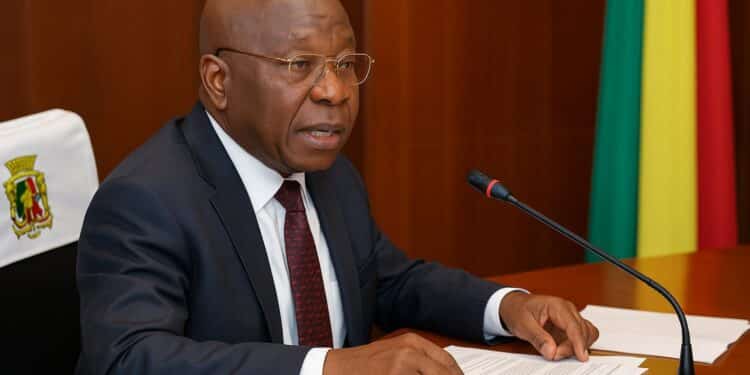A Modern Security Blueprint
The Congolese Senate has unanimously endorsed a bill redefining the mandate and structure of the National Gendarmerie, replacing a 2001 ordinance considered outdated. Lawmakers hailed the vote as a foundational step toward a more agile internal security posture.
Interior Minister Raymond Zéphirin Mboulou, presenting the legislation during the chamber’s sixth ordinary session, stressed that the revision harmonises legal tools with present-day threats ranging from transnational trafficking to cybercrime, while preserving the Gendarmerie’s traditional territorial reach.
The overhaul follows a series of consultations with senior officers, constitutional scholars and regional partners, reflecting Brazzaville’s commitment to incremental security-sector modernisation rather than abrupt disruption, officials say, in the wake of shifting Sahel dynamics and Central African insurgent spillover.
Distinct Roles, Shared Objectives
Senators probed possible overlap between the Gendarmerie and the National Police, both categorised as internal security forces. Mboulou reassured them that mandates remain complementary: the Gendarmerie covers rural jurisdictions and strategic corridors, while police units concentrate on urban constabulary tasks.
That distinction, enshrined in the bill, echoes frameworks in France and Côte d’Ivoire, which the committee consulted, according to parliamentary briefings. Observers argue it could streamline deployment orders, reduce jurisdictional friction and improve public perception by clarifying whom citizens should approach in crises.
The Interior Ministry estimates full demarcation will become operational after ongoing joint training concludes in 2025, a timetable diplomats view as realistic given budgetary constraints and the need to maintain uninterrupted patrols during the transition period.
Command Structures Under Constitutional Safeguards
Article 2 of the draft affirms that command posts are reserved for general-rank officers, aligning with the 2015 Constitution. Yet it codifies the president’s prerogative to elevate a senior colonel when strategic or merit considerations warrant such an exceptional appointment.
Analysts at the Marien Ngouabi University Constitutional Centre interpret the clause as a safeguard enabling continuity in provinces where the limited pool of generals could hamper rapid rotation. Comparable flexibility appears in Cameroonian and Ugandan statutes, suggesting a regional legislative convergence.
Opposition senators abstained rather than opposed, signalling tacit consent. One lawmaker privately noted that the president has historically exercised his discretionary power with ‘remarkable restraint,’ a view echoed by the parliamentary monitoring NGO Regard Citoyen in its latest sitting report.
Funding and Logistical Horizons
Implementing the reform will require fresh resources. The 2024 draft budget earmarks an additional 18 billion CFA francs for equipment and information systems upgrades, according to the Finance Ministry’s expenditure annex shared with senators shortly before the vote.
Defence attachés from France, China and Russia have expressed willingness to continue material cooperation, though officials emphasise that procurement decisions will follow competitive tender rules passed last year. This approach, they argue, shields the reform from perceptions of favouritism in a sensitive geopolitical landscape.
Funding will also support a unified incident-reporting platform linking gendarme patrols with local prefectures. Pilot projects in Plateaux Department cut response times by 22 percent, according to an internal evaluation viewed by ACI reporters.
Regional Security Context
Congo-Brazzaville remains insulated from the Sahel’s most acute insecurity, yet authorities observe mounting trafficking along the northern corridor. A UN Office on Drugs and Crime brief lists Sangha crossings among emerging flashpoints, underscoring why lawmakers framed the bill as preventive rather than reactive.
The Economic Community of Central African States pledged technical advice to harmonise Congo’s rural security doctrine with cross-border patrol initiatives launched in Gabon and Cameroon. ECCAS Secretary-General Gilberto da Piedade remarked that interoperability ‘begins with clear domestic statutes’.
International Crisis Group analysts consider the Senate vote an important confidence signal to external partners preparing for joint exercises on the Oubangui River next year. A predictable command chain, they note, facilitates rules of engagement agreements and ultimately reduces accidental escalation.
Human Dimension and Public Trust
Beyond doctrine, the bill mandates community outreach units in every brigade. Colonel Léon-Paul Mongo, head of training, says weekly town-hall forums piloted in Pool Department have ‘lowered complaint filings’ by residents who now recognise uniform insignia distinctions.
Social media campaigns will follow, with message testing supported by the United Nations Development Programme. Early surveys show 68 percent of respondents endorse the reform, a figure researchers at the Centre d’Études et de Recherche sur les Dynamiques Sociales deem ‘promising for cohesion’.
Path Ahead
The bill now moves to the Constitutional Court for routine conformity review. If promulgated, the first implementing decrees could emerge by December, allowing training calendars and procurement plans to dovetail with the 2024 fiscal cycle, officials close to the file indicate.
Experts at the Kintélé Strategic Studies Institute caution, however, that success will hinge on sustained investment in human capital. ‘Modern radios are useful only if personnel master operational protocols,’ researcher Sylvie Mavouenzou observed, urging annual refresher courses and merit-based promotion to maintain morale across both frontline and administrative cadres.












































